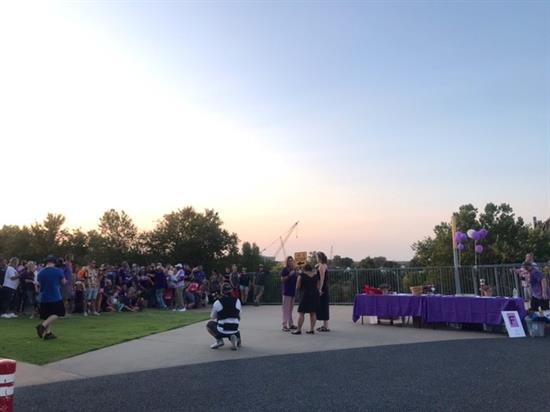Hill proposes opioid crisis program
Washington,
September 8, 2021
Hill proposes opioid crisis program
by Stephen Simpson Arkansas Democrat Gazette 09/08/2021 U.S. Rep. French Hill, R-Ark., has proposed creating a grant program that would assist states dealing with the opioid crisis by allowing strategic planning and co-prescribing anti-overdose drugs. Hill announced Tuesday afternoon he would introduce the Preventing Overdoses and Saving Lives Act. The bill would create a grant program for states and localities to fund research of the opioid crisis, create a strategic response plan and implement co-prescribing in their jurisdiction. Hill said the bill will be bipartisan, with U.S. Rep. Debbie Dingell, D-Mich.,. as a co-sponsor. "This is an issue that is personal to me as well as many Arkansans," he said. "In 2020, we lost over 90,000 Americans to drug overdoses." In Arkansas, 547 people died of an overdose in 2020, a 55% increase from 2019. Hill said the amount of money that would be allocated to this program is yet to be determined, but he wants 80% of the funding states receive to go to implementing a strategic plan and 20% to go to co-prescribing programs. Hill said to overcome the opioid problem, solutions must be implemented at the state and national level. "We have 90,000 people being lost a year and it's stunning to me that we don't have more people animated about this," he said. Earlier this year, state legislators passed Act 651, which mandates physicians must prescribe naloxone, a nasal spray that can quickly reverse the effects of an overdose, when they prescribe opioids. It also requires physicians to provide counseling on how to safely and effectively use both drugs. Most of the focus at the news conference, held on the second floor rotunda at the state Capitol, was about how co-prescribing anti-overdose drugs would be a lifesaver for many. Arkansas Drug Director Kirk Lane; Paula Cunningham, executive director, Parker Gill Foundation; and Teresa Belew, director of corporate affairs, Speakup About Drugs, all spoke at the event. Lane said naloxone is making a difference in Arkansas, which is averaging nine to 11 administrations of it a day. "This year we have 1,100 lives in Arkansas that have been saved by naloxone," he said. "Imagine how high that 547 number would be without naloxone." Cunningham spoke about the overdose death of her son and how naloxone saved his life at one point. "Some might say, what is the point, since he died anyway, but in that time between he touched so many lives in recovery," she said. "We are losing a generation to overdoses. We must do something and this bill is a big thing." Lane said education, collaboration and defeating the stigma of addiction is key and Hill's bill addresses all three. Hill also said fentanyl was becoming a problem within the state. He said illegal shipments of fentanyl from Mexico and China were the main reason behind these overdoses. He said fentanyl was being mixed into opioids, marijuana, meth and cocaine as a booster, with sometime lethal results. Earlier this year, the state Crime Laboratory reported that for the first time, more people in Arkansas died from a fentanyl overdose than from meth. "We had 148 fentanyl deaths last year and 142 meth overdose deaths and 65 overdose deaths related to a mixture of both," Hill said. Among other laws on the opioid crisis, Act 284 of 2017 authorizes pharmacists to dispense naloxone to friends and family of someone who is at risk of dying from an overdose. In 2015, the Legislature passed Act 1114 to provide immunity from arrest for friends of a person who is about to die from an overdose, if they take him to a hospital or contact law enforcement to seek medical assistance. That same year, the Legislature approved Act 1222 to grant civil immunity to emergency medical technicians and first responders who administer naloxone to someone at risk of an opioid overdose. The Legislature also created the Prescription Drug Monitoring Program, which helps prevent abuse by allowing authorities to track individuals who get inordinate amounts of addictive drugs to prevent what is known as pharmacy shopping. |


